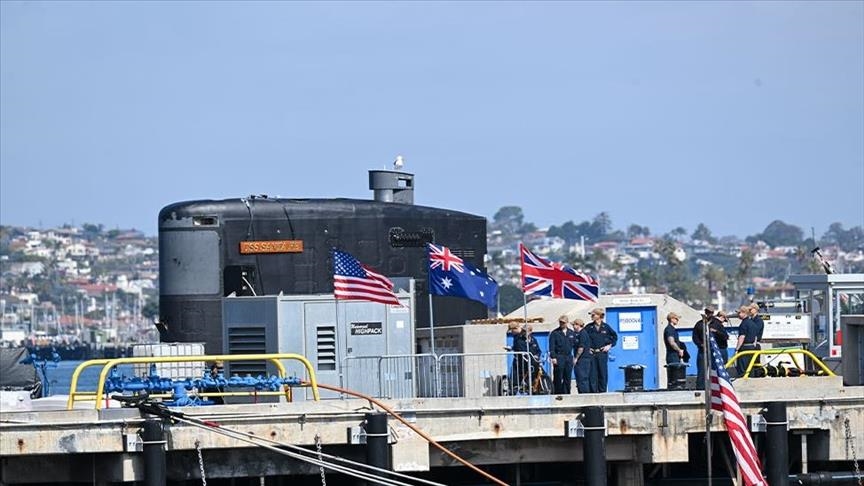LONDON: The UK, US and Australia pledged continued cooperation Thursday to bolster military and security efforts, particularly in the Indo-Pacific region in a significant reaffirmation of the AUKUS defense partnership.
A statement followed a high-profile meeting at the historic Old Royal Naval College in London, attended by the defense chiefs UK, US and Australia — John Healey, Lloyd Austin and Richard Marles, respectfully, that served as a crucial review of progress under AUKUS
The defense chiefs reiterated the enduring nature of the collaboration amid a rapidly evolving global security environment and stressed their shared commitment to upholding a rules-based international order.
A focal point of discussion was the development of conventionally armed, nuclear-powered submarines under the SSN-AUKUS program.
The project, which has seen significant investments from all three nations, is crucial to enhancing defense capabilities. The UK pledged £4 billion ($5.3 billion), the US is contributing $17.5 billion, and Australia has committed more than AUD 30 billion ($20.7 billion).
The funds are aimed at building necessary infrastructure, a skilled workforce and supply chains to support the long-term success of the program.
The trio underscored their commitment to the highest nuclear non-proliferation standards, with Australia engaging closely with the International Atomic Energy Agency (IAEA) to develop robust safeguards.
Beyond the submarine program, advancements in cutting-edge military technologies were also highlighted.
Under AUKUS’s second pillar, the nations are working together on projects involving artificial intelligence (AI), hypersonic weapons and autonomous systems.
The collaboration includes trilateral tests and experiments designed to enhance long-range precision strike capabilities, reflecting a shared ambition to remain at the forefront of military innovation.
The AUKUS trilateral pact between Australia, the UK and the US which was established in 2021, is a cornerstone of the three nations’ strategy to ensure a “free and open Indo-Pacific that is peaceful, secure, and stable,” it said.


